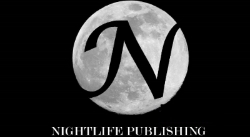by Gamal Hennessy
Last year, the internet expressed a considerable amount of outrage when we realized some elements of American law enforcement were using military weapons and tactics on American citizens. People went out into the street to protest sanctioned police brutality and murder (See Who Watches the Watchers). On this blog, I advocated endangered groups in our society adopt a version of the Moscow Rules to cope with the reality we live in (See Racism, Misogyny and the Moscow Rules). All these deaths and revelations have not altered the climate of fear. If the latest reports are to be believed, things might be getting worse.
The Guardian recently ran a story about a secret detention center run by the Chicago police department. (See Chicago Police Detain Americans in Black Site). Like Abu Gharaib in Afghanistan, the CIA secret prisons in Turkey and Guantanamo Bay in Cuba, we might be creating institutions and venues to deal out the same punishments we ascribe to our hated enemy. The only difference between Gitmo and Homan Square is the nationality of the people being abused. In the military secret prisons, alleged foreign fighters and terrorists are the inmates. In Chicago, and perhaps in other cities, the prisoners are American.
If the Guardian report is true, then the Homan Square detention center might have more in common with the old Soviet Union gulag system then the War on Terror black sites. When Stalin and his regime wanted to remove dissidents from the political discussion and sow fear into the populace, people would be snatched off the street and perhaps never heard from again. Dictators like Pinochet, Pol Pot and Idi Amin are accused of doing the same thing. Is it time to add the Chicago chief of police to this list? Have we moved from fighting totalitarian regimes to supporting them, to using their tactics on our enemies to using those same tactics on ourselves? If so, if the Guardian report is true, what happens next and to whom? What, if anything, are we going to do about it?
Based on the internet chatter going across my screen, we aren’t going to do anything. This week, I’ve seen far more arguments about the color of a dress than the alleged atrocities of Homan Square. There wasn’t even the impotent call for indictments like the one the Times issues after the CIA torture report was issued. (See The Futile Call for Torture Justice). Why? Have we so fully accepted our collective impotence against the power of the state that we’re not even willing to address their atrocities anymore? Are we so numb to discussions of torture that we accept it as an inevitable reality? Do we enjoy the idea of security so much that a secret police prison makes us feel better? (See America’s Love Affair with Torture).
I understand the concept of police using detention and the labyrinth of the criminal justice system to manipulate and abuse suspects. As a person of color, the fear of walking into a police station and never coming out has crossed my mind more than once. The idea has become a trope in modern crime drama from Dirty Harry to The Wire. Is Homan Square just another step in the direction of roughing someone up in an interrogation room? Is it too late to turn back now?
There is a line from the last Captain America movie I think of when situations like these cross my mind. Steve Rogers and Nick Fury are staring out at four huge aerial battleships designed to hit anyone in the world anywhere at any time.
Fury: We’re going to use these to maintain security all over the world.
Rogers: That’s not security. That’s fear.
The exchange might come from a comic book movie, but there is more insight there than in our current cultural discussion. It is a sad day in America when local law enforcement creates secret prisons to hide and abuse Americans. It is a tragic day when Americans decide they don’t care.
Have fun.
Gamal








